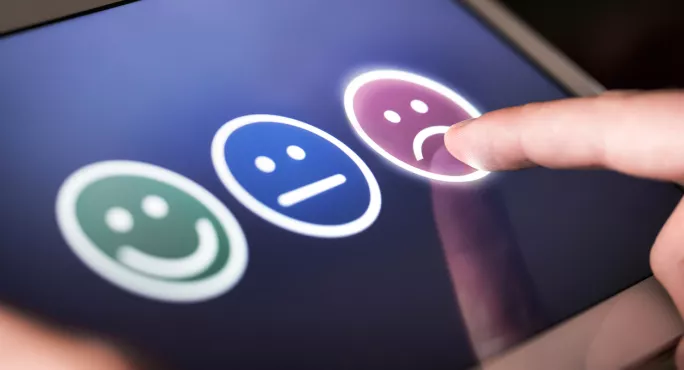Do teachers have any rights over online lessons?

Whether we like it or not, teachers are now very much more on show to a wider audience. When education secretary Gavin Williamson announced that parents could report their children’s schools to Ofsted for failing to provide adequate learning online, he opened quite a can of worms.
Helicopter parents, anxious about their children’s progress, have been known to issue instructions of their own while the teacher is talking during online lessons, thus undermining the independence of their child and causing confusion. How can a child learn while trying to process two sets of instructions at the same time?
Worse, there are some parents who take it upon themselves to intervene in the lesson while the teacher is talking, and to provide their corrections. It’s difficult, to say the least, to know how to deal with such interruptions.
In the real classroom, we don’t have parents sitting at the back, and authorised visitors know that any intervention distorts the dynamic. Seasoned observers who are properly trained, on the other hand, provide great learning opportunities for teachers within the right environment.
Parents crossing the line during online learning
If there is an important issue with the accuracy of what is being taught, and the teacher is in error, then the class teacher (and the head, if necessary) should instead be contacted after the session by email.
Often, students are expected to have their cameras on, so that teachers can see that they are engaging in lessons. (It is rather easy for children to turn their cameras off and then leave the room or play on their Xbox. Teachers usually know that this is happening when their question is met with a prolonged, unbroken silence).
But, even if cameras are on, there is the worrying question about who else could be in a child’s room off-camera. And should unknown adults have the opportunity to address the virtual classroom when most children don’t even know them?
Parents encouraged into judgmental mode may cross the line in other ways, too. Some parents compare the quality of teaching from their respective children’s lessons on social media. While it’s very uncomfortable to be aware of this possibility, there isn’t a great deal schools can do to challenge it.
Instead of opening the floodgates to criticism, Gavin Williamson should have been working with the profession to ensure that home-school dialogue is kept at an objective level, to protect individuals and schools’ reputations, and to protect staff, who are doing their level best under extreme conditions to nurture the children in their care.
Instead, perhaps schools will now have to rewrite their child protection guidance to include a code of behaviour for parents to follow when their children are online.
Silence on the issue of teachers’ rights
Government focuses on safeguarding children but, unless I’m missing something, it is curiously silent about teachers’ rights.
This seems worrying enough. But read through the more comprehensive NEU guidance, and you’ll see this piece of advice: “Pupils and parents should sign an agreement not to record or share any element of live lessons; schools may warn the school community of the consequences of engaging in such behaviour.”
Implicitly, this advice recognises the danger of whole or segments of lessons being shared on social media. But it does not explicitly state the nature of the offence or the consequences.
Schools and colleges own the intellectual copyright of anything that is broadcast via their platforms. In the worst-case scenario, this means that anyone re-broadcasting even a part of a lesson could face legal consequences. We are very new to online schooling, and have much to learn about regulating other people’s use of our work, so no case has yet been fought, but is it just a matter of time before such a case arises?
More concerning is what might happen if parents should decide to broadcast part of a lesson. It may not only be the teacher who appears on screen or whose voice is heard. Children participating in the lesson may be named or may give away details of their lives. Will we see cases where a parent is prosecuted for breaching someone else’s child’s (or a teacher’s) data under GDPR legislation?
When Gavin Williamson invited parents to comment on their child’s access to online teaching and the quality of provision, he no doubt intended to use every means possible to secure a minimum quota of online lessons. Sadly, it’s a move that smacks more of George Orwell’s 1984 than of the more open society that we should still be enjoying, even in the pandemic Britain of 2021.
It is a very uncomfortable world that teachers have been thrust into: one that needs to be regulated more strongly, so that everyone is aware of the rules.
So far, parents have stood by teachers in the aftermath of Gavin Williamson’s speech - or, at least, the most fair-minded and most positively vocal have done.
But, as time goes on and we all get weary of lockdown measures, there is the as yet unchallenged issue of who sees online lessons, who has the right to intervene, how they might do so - and how the rights of those engaged in everyday learning should be protected.
Yvonne Williams has spent nearly 34 years in the classroom, and 22 years as head of English. She has contributed chapters on workload and wellbeing to Mentoring English Teachers in the Secondary School, edited by Debbie Hickman (Routledge)
You need a Tes subscription to read this article
Subscribe now to read this article and get other subscriber-only content:
- Unlimited access to all Tes magazine content
- Exclusive subscriber-only stories
- Award-winning email newsletters
Already a subscriber? Log in
You need a subscription to read this article
Subscribe now to read this article and get other subscriber-only content, including:
- Unlimited access to all Tes magazine content
- Exclusive subscriber-only stories
- Award-winning email newsletters